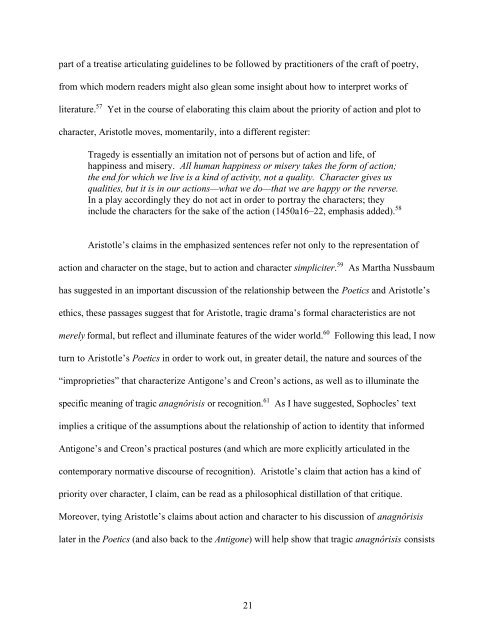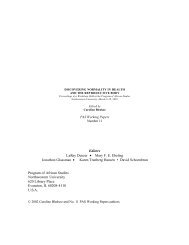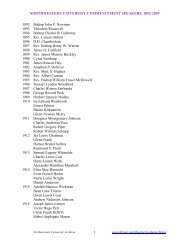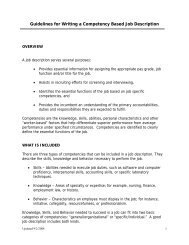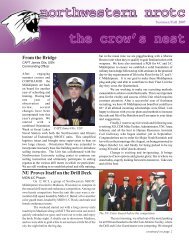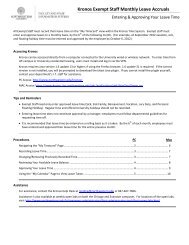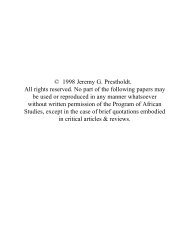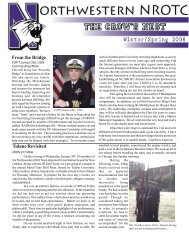TRAGIC RECOGNITION: ACTION AND IDENTITY IN ANTIGONE ...
TRAGIC RECOGNITION: ACTION AND IDENTITY IN ANTIGONE ...
TRAGIC RECOGNITION: ACTION AND IDENTITY IN ANTIGONE ...
You also want an ePaper? Increase the reach of your titles
YUMPU automatically turns print PDFs into web optimized ePapers that Google loves.
part of a treatise articulating guidelines to be followed by practitioners of the craft of poetry,<br />
from which modern readers might also glean some insight about how to interpret works of<br />
literature. 57 Yet in the course of elaborating this claim about the priority of action and plot to<br />
character, Aristotle moves, momentarily, into a different register:<br />
Tragedy is essentially an imitation not of persons but of action and life, of<br />
happiness and misery. All human happiness or misery takes the form of action;<br />
the end for which we live is a kind of activity, not a quality. Character gives us<br />
qualities, but it is in our actions—what we do—that we are happy or the reverse.<br />
In a play accordingly they do not act in order to portray the characters; they<br />
include the characters for the sake of the action (1450a16–22, emphasis added). 58<br />
Aristotle’s claims in the emphasized sentences refer not only to the representation of<br />
action and character on the stage, but to action and character simpliciter. 59 As Martha Nussbaum<br />
has suggested in an important discussion of the relationship between the Poetics and Aristotle’s<br />
ethics, these passages suggest that for Aristotle, tragic drama’s formal characteristics are not<br />
merely formal, but reflect and illuminate features of the wider world. 60 Following this lead, I now<br />
turn to Aristotle’s Poetics in order to work out, in greater detail, the nature and sources of the<br />
“improprieties” that characterize Antigone’s and Creon’s actions, as well as to illuminate the<br />
specific meaning of tragic anagnôrisis or recognition. 61 As I have suggested, Sophocles’ text<br />
implies a critique of the assumptions about the relationship of action to identity that informed<br />
Antigone’s and Creon’s practical postures (and which are more explicitly articulated in the<br />
contemporary normative discourse of recognition). Aristotle’s claim that action has a kind of<br />
priority over character, I claim, can be read as a philosophical distillation of that critique.<br />
Moreover, tying Aristotle’s claims about action and character to his discussion of anagnôrisis<br />
later in the Poetics (and also back to the Antigone) will help show that tragic anagnôrisis consists<br />
21


